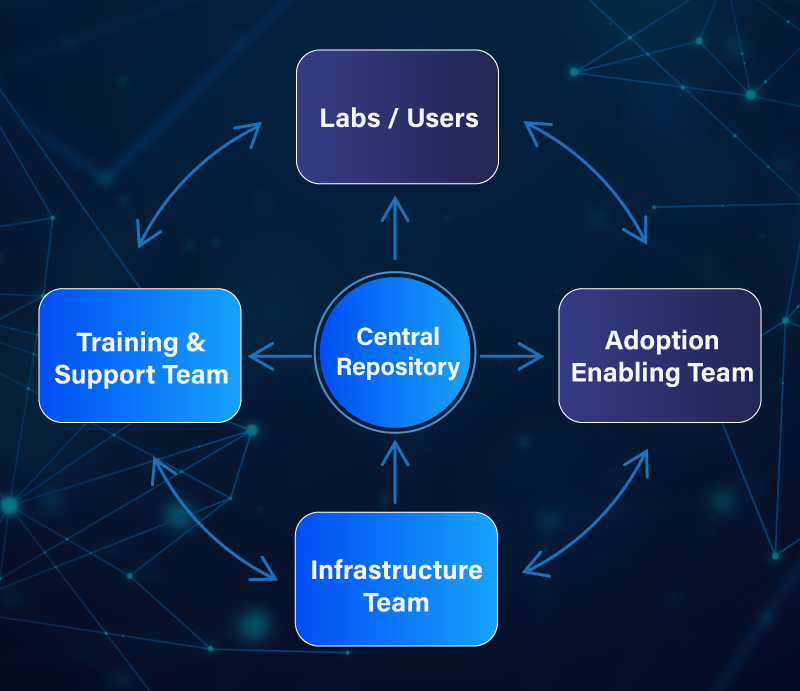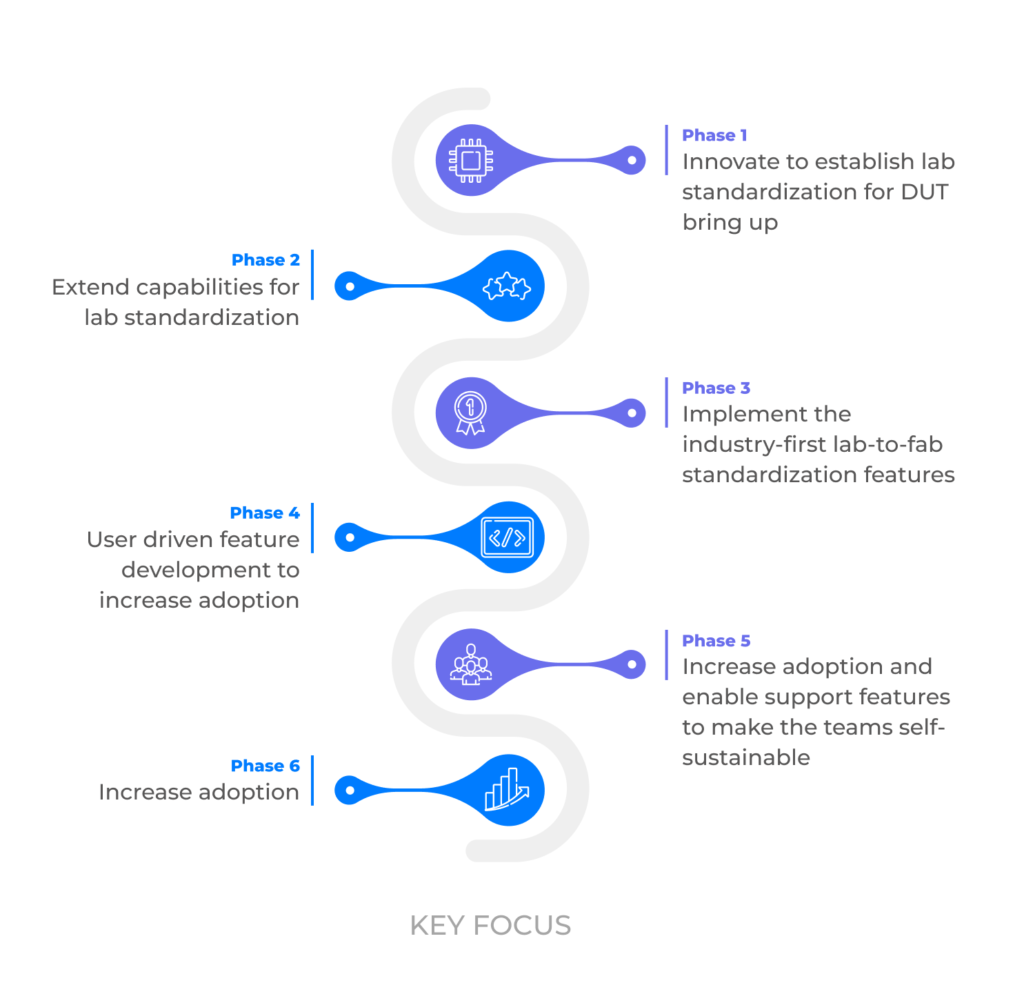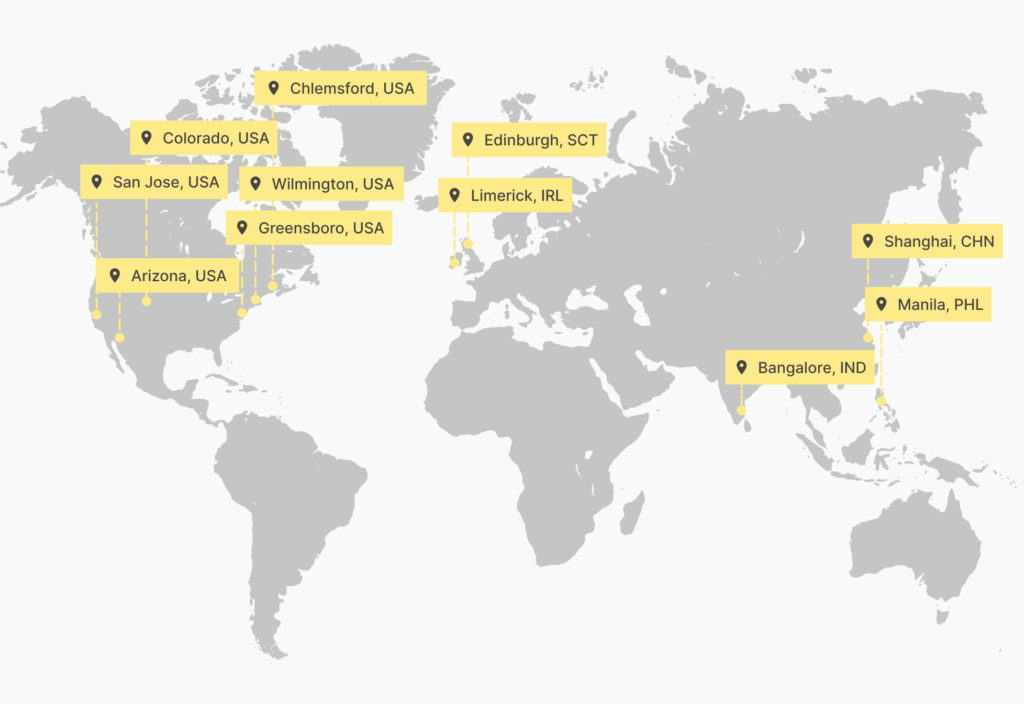
Analog Devices, Inc.’s (ADI) partnered with Soliton for a Lab to Fab standardization initiative aimed at achieving significant efficiency improvement across the lifecycle. Soliton developed a comprehensive, first-of-its-kind solution, including a low-code workflow automation interface that has enabled global teams to collaborate efficiently, optimize test workflows, and achieve significant quantitative and qualitative benefits.
“We needed to develop standardization in the evaluation labs, and Soliton has been instrumental in that process over several years, working directly with individual lab teams and developing a common framework that is now supporting many diverse teams. We have seen the tools as particularly useful during company mergers as it is scaled for global use within the company.”
– Sr. Director – Test Enablement Group, Global Operations and Technology, Analog Devices








